My 24 Hours Unplugged
It was fitting that I finished reading The Village Effect: How Face-to-Face Contact Can Make Us Healthier and Happier(Susan Pinker) just a day before participating in the National Day of Unplugging, a day when thousands of people commit to going 24 hours without their phones.
After reading Pinker’s book, I had a heightened awareness of what she refers to as the “displacement effect.” Pinker explains that when we are on our screens, that time is not being spent doing other important things, including looking into each other’s eyes, reading each other’s facial expressions and non-verbal cues, and feeling the human connection that only comes through face-to-face interactions.
I’ve long been a proponent of the importance of getting kids unplugged, and I have promoted why having a tech break is one of the greatest benefits for kids who attend unplugged summer camps. But I myself have not spent 24 hours unplugged in recent years unless I was out on a backpacking trip. So I decided to participate in this break from screens and see what the experience was like for me.
One thing that was clear is that it’s a very different experience unplugging during a regular winter weekend, especially when the people around me were not unplugged, than at summer camp where everyone around me is also unplugged. But I had decided that in order to have an enjoyable and relaxing unplugged experience myself, I was not going to push my husband and teenage sons to participate unless they wanted to. They didn’t.
I had anticipatory anxiety in the few days leading up to the weekend. What if someone needed to reach me? What if there was something I needed to look up – like a phone number? Prior to going offline, I sent a text to my adult kids letting them know they could use our landline or call dad if they needed anything.
The unplugging itself turned out to be much easier and more enjoyable than I anticipated.
My 24 Hours Unplugged
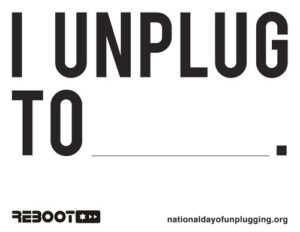 On Friday evening, before the sun set, I turned off and stacked my laptop, tablet, and phone in a neat pile on my desk.
On Friday evening, before the sun set, I turned off and stacked my laptop, tablet, and phone in a neat pile on my desk.
After an enjoyable dinner with my family, I sat by the fire and did some reading and sorting of notes and resources I’ve been collecting for a few years. It appears that my digital life distracts me from some of my analog tasks, even enjoyable ones like reading through articles on topics of interest.
My normal bedtime routine includes charging my phone in my office and reading from a real book, so I followed my normal routine (I’m currently enjoying My Cousin Rachel) then went to sleep.
Saturday morning – always a favorite day, especially when there’s nothing on the calendar – included coffee with my husband and some more reading by the fire. It was a relief not to feel the need to check anything (emails, messages, etc). Given that it was Saturday, I reflected on the fact that the constant barrage of email (which does not subside on weekends) has made me feel like I need to check and answer it. But that’s not the case. I can set the boundaries for which days and times I’m going to check and answer emails. And, unless it’s the summer months where I have other people’s kids in my care, weekends are not a time I need to be answering email.
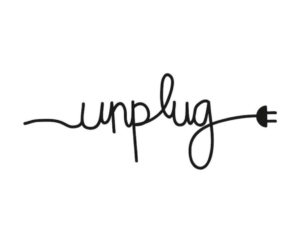 Because I normally use my treadmill for a morning walk while doing work (I have a treadmill desk set-up), I chose instead to take my dog for a short walk outside. With no music playing in my ears, I listened to birds and distant cows (I live in the foothills, so there’s lots of nature sounds going on out here). Because I didn’t have music or a podcast to distract me, I didn’t exercise for very long. So I guess that was one downside to my unplugged experience.
Because I normally use my treadmill for a morning walk while doing work (I have a treadmill desk set-up), I chose instead to take my dog for a short walk outside. With no music playing in my ears, I listened to birds and distant cows (I live in the foothills, so there’s lots of nature sounds going on out here). Because I didn’t have music or a podcast to distract me, I didn’t exercise for very long. So I guess that was one downside to my unplugged experience.
The first time I really thought about reaching for my phone was around noon, when I got in the car with my husband (as a passenger) to pick up his parents for an overnight trip to Yosemite. Long drives while my husband is driving have been – normally – a time when I enjoy scrolling and catching up on social media. But, alas, this trip I spent chatting with others in the car and enjoying the view. What a concept!
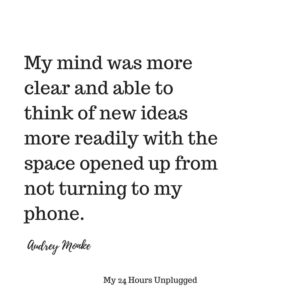 As we drove through Yosemite in a light rain, I considered several new ideas on children’s friendship that I want to research and write about, and I jotted quick notes in my bullet journal as I thought of them. My mind was more clear and able to think of new ideas more readily with the space opened up from not turning to my phone in the boredom of a long drive.
As we drove through Yosemite in a light rain, I considered several new ideas on children’s friendship that I want to research and write about, and I jotted quick notes in my bullet journal as I thought of them. My mind was more clear and able to think of new ideas more readily with the space opened up from not turning to my phone in the boredom of a long drive.
Because we were exploring the hotel and busy, I did not end up turning my phone back on right at sundown. When I did turn it on around 7:00 p.m., 26 hours after turning it off, there were just a few text messages. I glanced through them, didn’t need to answer any, and ended up turning it back off and leaving my phone in our hotel room for dinner. I was enjoying the unplugged time too much to let it end so soon. And I liked not having my phone with me, in my purse, as a distraction.
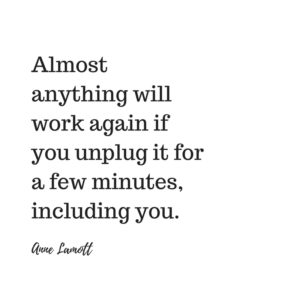 Being unplugged for 24 hours was not only easy, but so enjoyable that I’m thinking about making it a regular weekly thing. What was most remarkable about the experience was exactly what Pinker described. It was how I filled my time and what I did instead of being on my phone that turned out to be what mattered most.
Being unplugged for 24 hours was not only easy, but so enjoyable that I’m thinking about making it a regular weekly thing. What was most remarkable about the experience was exactly what Pinker described. It was how I filled my time and what I did instead of being on my phone that turned out to be what mattered most.
Like many adults, I see that I am at times addicted to my devices, checking far too often to see the latest messages. I wonder how we can expect our kids, who are still learning to self-regulate, to figure out how to navigate technology wisely if we haven’t figured it out ourselves? I think wise technology use needs to start with us. By learning to use our own technology in moderation, we model happier lives and good tech habits for our kids.
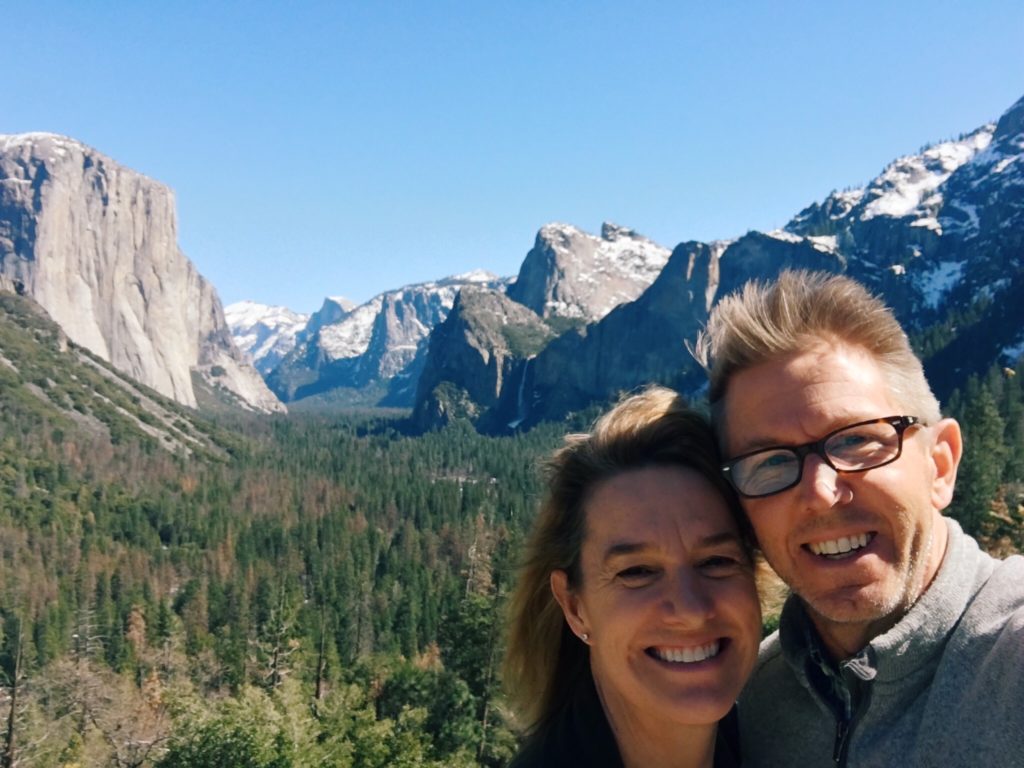
Yosemite (the day after my unplugged day)
Thinking about unplugging more yourself?
Here are some resources, podcast episodes, and further reading:
Ep. 26: Be the Parent, Please, with Naomi Riley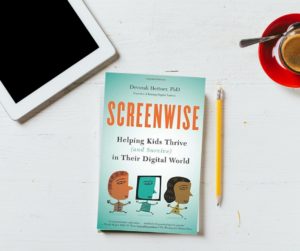
Ep. 19: Being a Tech-Positive Parent with Devorah Heitner
Ep. 4: Giving Kids’ Phones a Vacation
Too Much Screen Time? 4 Ways Summer Camp Can Help
10 Lessons for Parents Raising Kids in a Digital World
Why We Need to Unplug to Connect with our Families
11 Ways to Help Kids Create Real Connections
The Importance of Actually Unplugging on National Day of Unplugging


